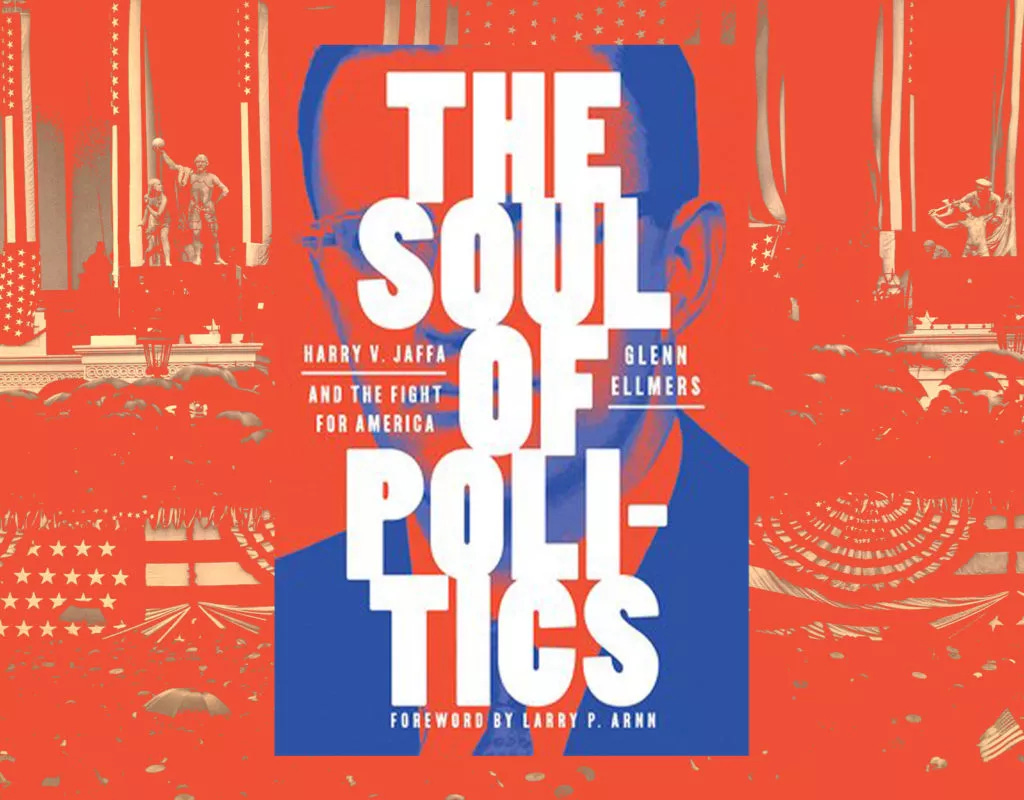Recently at The Bulwark:
SONNY BUNCH on Netflix’s Red Notice, which is“Destined to be the most-watched, least-remembered film of our age.”
DAVID J. KRAMER on why the U.S. and the EU need to get tough with Georgia.
TIM MILLER on how Chris Christie decided half a decade late that the GOP should not be Trumpian.
You can support The Bulwark by subscribing to Bulwark+ or just by sharing this newsletter with someone you think would value it.
And now, for today’s newly redesigned OVERTIME!
THOMAS W. MERRILL: Why was the Claremont crowd so distinctly susceptible to Trumpism? Does its intellectual hero, Harry Jaffa, bear some responsibility?
Ellmers makes clear his political hopes in the opening pages of the book. He says he is addressing “you, spirited moral gentlemen, America’s natural aristoi,” in the hopes of spurring those readers into rising up to confront “the crisis of Western civilization, of civilization itself.” This is a close relative of the argument made in Michael Anton’s infamous “Flight 93 Election” article. Like Anton, Ellmers understands the project of saving Western civilization as above all a partisan project (as this article by Ellmers makes clear). Ellmers calls us, first and foremost, not to reflect or to understand but to act—and he thinks Jaffa can be a kind of patron saint or guru of a new conservative movement to do battle with the “woke.”
The danger in such a project, however, is that instead of being the intellectual leader of the movement, the movement ends up leading you. Rather than articulating the legitimate perspective of a political movement while moderating its foolish and delusional parts, you end up reflecting the delusional parts.
Which is what I think has happened. Although some writers have suggested that the Claremont school is a cause of, or bears some intellectual responsibility for, the current Trumpified conservative movement, I am inclined to think that the relationship is the other way around. The Claremont school is likely more a reflection of the mood of today’s conservatism than a cause of it—a lagging indicator rather than a leading one. (I leave aside John Eastman, who, with his January 6 memos, is in a different category.) Today’s conservative movement is animated by a Manichaean desire to divide the world into friends and enemies and a grandiose belief that the world will be saved or lost in our current moment. The interesting question is not whether the Claremont school caused these characteristic delusions, but rather: Why were members of the Claremont school so distinctly susceptible to them? Why were they so easily carried away by what looks like it will be judged by history as conspiracy theories? Why do they to this day still find it hard to admit that Trump is a bad actor with bad judgment?
After years of pushing fear, the NRA is facing an existential crisis. Government investigations and the billionaire lifestyle of Wayne LaPierre may spell the end for one of the most powerful organizations in America. NPR's Tim Mak joins Charlie Sykes on today's podcast.
JVL on Andrew Sullivan and the narrative of the “MSM narrative.”
What and/or who is “the mainstream media”? Is it the New York Times and the Washington Post? The AP? NBC News and CNN? Ryan Lizza’s Twitter feed? The Los Angeles Times? BuzzFeed? Axios? NPR? Maggie Haberman’s book?
The “mainstream media”—I’m going to stop putting that in quotes, but keep imagining that I’m saying it sarcastically—is probably made up of several thousand individuals and then a three-figure number of institutions. At any given moment, on any given story, some number of these people and institutions will communicate facts that are eventually understood to be misleading or incorrect. Some of these people and institutions are better at their jobs than others.
The point is that the MSM universe is so large that you’re always going to be able to cherry-pick examples to support the notion that “they” are feeding “us” false narratives.
On last Friday’s pod, Tim Miller was telling Charlie about some of the deep dives he’d been doing on the AIDs crisis, and wanted to make sure listeners got these reading recommendations:
Two books that are fiction but take a lot from the public record and author’s experience are The Great Believers and The Prettiest Star. Recommend both highly
Reading The Great Believers took me down a rabbit hole of articles from the Chicago Reader where Bulwark reader Albert Williams wrote at the time. Thank you, Albert!
That’s it for me. We’ll see you tomorrow. Tech support questions? Email support@substack.com. Questions for me? Drop me a line: swift@thebulwark.com
—30—
Editorial photos provided by Getty Images. For full credits, please consult the article.





